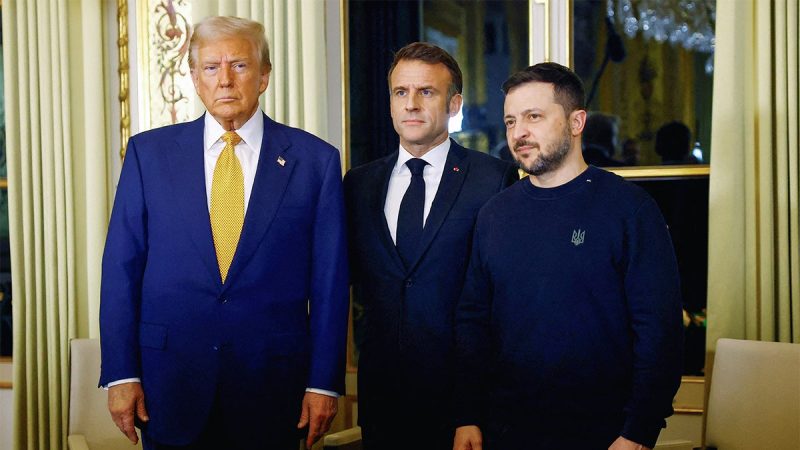
NEWT GINGRICH: Biden may be president but Trump is already leader of the free world
It is clear Donald J. Trump will be a remarkable second-term president. His courage and endurance over the last nine years have already made him an historic figure – even before he made the greatest comeback in American political history on Nov. 5.
The four years he spent out of office gave President-elect Trump time to think through how much he wanted to change the establishment. He was also able to consider what steps he could take to remove the dictatorial elements in the American system.
I thought his second term would start on his inauguration on Jan. 20, 2025. That is the date he will become President de jure, the Latin term for something being in the law.
However, it never occurred to me that President Trump’s fame, energy, and drive – and President Joe Biden’s collapse – would lead to a totally new model. The actuality is that President Trump has become the de facto President. De facto in Latin means ‘in reality or as a matter of fact.’
When French President Emmanuel Macron greeted President Trump with the full honors of state during his recent trip to Paris, it was clear that the mantle of American power had shifted decisively to President Trump.
When President Trump met with Ukrainian President Volodymyr Zelenskyy and President Macron to discuss Ukraine, it was clear where the center of world power resided.
The images of President Trump and Italian Prime Minister Giorgia Meloni were a powerful contrast to Meloni’s recent meeting with President Biden, in which she had to go find him and lead him back to a group photo. Furthermore, Meloni is a conservative populist. She is solving illegal immigration and creating economic growth, in a manner similar to President Trump.
The fact is President Trump is the de facto President. He is the practical leader of the United States even before his inauguration. He is negotiating with leaders and sending signals about massive domestic and foreign policy changes. He is essentially eliminating President Biden and Vice President Harris from the public stage by the sheer scale and energy of his activities.
Part of his de facto presidency comes from him being an effective leader compared to the ineffective leaders in the current White House.
Politico captured the startling change in a Dec. 9 piece headlined, ‘Biden shrinks from view ahead of Trump’s return to Washington.’
According to the outlet:
‘Joe Biden is president of the United States for 42 more days. But within the Democratic Party, on Capitol Hill — and even within his own administration — it feels like he left the Oval Office weeks ago.
‘Biden has effectively disappeared from the radar in the wake of the Democrats’ bruising electoral loss…. ‘He’s been so cavalier and selfish about how he approaches the final weeks of the job,’ said a former White House official.
‘‘There is no leadership coming from the White House,’ one Democrat close to senior lawmakers stated bluntly. ‘There is a total vacuum.’
The American people agree that the torch has been passed from a liberal Democrat to President-elect Trump. A recent Rasmussen Reports poll showed that 55 percent of likely U.S. voters believe the election is a mandate to enact the policies on which President Trump campaigned. About one third (32 percent) disagree, but another 13 percent are not certain whether the election was a mandate.
With a 55% to 33% lead, President Trump can continue to push forward. If his energy and strategies work out, the 13% will probably join the pro-agenda side to give him a 2:1 advantage.
The importance of this change cannot be overstated.
Traditionally, presidential inaugurations occurred on March 4.
President-elect Abraham Lincoln had to wait four months to take office. During that time, lame duck President James Buchanan allowed the slave-owning secessionists enormous leeway to break apart the Union. The country was much worse off when Lincoln was finally sworn in than it was when he was elected.
Similarly, President-elect Franklin Delano Roosevelt refused to work with President Herbert Hoover between the election and his inauguration on March 4, 1933. The American economy grew substantially weaker during the waiting period.
These two experiences convinced the country to adopt the 20th Amendment, moving the presidential inauguration to Jan. 20 and avoiding six weeks of confusion and potential problems.
Now, in the real-time age of the internet, unending daily challenges, and an absentee White House, we need de facto President Trump more than we need the absentee President de jure.
